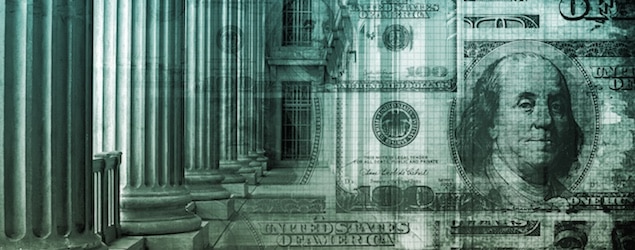Inequality and money in politics

Economist John Cochrane has a terrific op-ed on inequality in The Wall Street Journal in which he identifies money in politics as the chief target of the inequality warriors, as he calls the critics of income inequality. When you get past their bogus economic arguments, says Cochran, “most inequality warriors get down to the real problem they see: money in politics. They think money is corrupting politics, and they want to take away the money to purify the politics.”
Cochrane is definitely on to something important here. Although I don’t think controlling political spending is the inequality warrior’s ultimate goal, it’s great to see a prominent intellectual arguing that they are motivated by something other than their transparently silly economic arguments.
So what is their ultimate goal, in my view? Consider that, as Cochrane notes, it’s not everyone’s money the inequality warriors complain about. Critics of income inequality are fine with money and influence coming from groups that support more power for government. Note, for example, that you never hear complaints from the left about the hundreds of millions George Soros or environmentalist Tom Steyer spend on their various political causes. It’s only those who oppose government power that the inequality warriors cannot abide. As Cochrane puts it, “Koch brothers, no. Public employee unions, yes.”
I think this shows that antipathy for money in politics is only part of the inequality story. Controlling money in politics is not the inequality warriors’ end game, in my view; it’s just a means. Political spending, lobbying and other forms of influence are ways of trying to gain control of government. That’s what the inequality warriors want — control. Ultimately, they want to control our incomes, our businesses, our very lives so they can make us all “equal.” But the only way to do that is by controlling government and the power that only government possesses, which is force.
You can’t make people equal without the power to force them to be equal, which means taxing their incomes, restricting their choices and regulating their behavior. It’s no coincidence that Thomas Piketty wants to impose a punitive tax of 80% on incomes above $500,000. He’s not interested in funding social programs; he just wants to confiscate the wealth that makes some people unequal to others. And it should come as no surprise that Piketty advocates comprehensive government scrutiny of our financial affairs. You can’t control someone’s wealth without knowing their every source of income and where they spend it. If you thought the NSA was scary, wait until people like Piketty control the government.
Only government and the force of law can give the inequality warriors what they want, so it is entirely natural that they would want to prevent anyone but their allies from influencing what government does. Cochrane is right to call that effort “scary,” but I think the ultimate goal of the inequality warriors is far scarier than controlling money in politics. Today they want government to confiscate more of our incomes to make us “equal.” Tomorrow? To get a sense of how far anyone who is really serious about equality must go to achieve that goal, take a look at the many governments — the Soviet Union, China, Cuba, North Korea, Cambodia — that pursued the alleged ideal of complete equality during the 20th century. Now that’s scary.
Cochrane’s writings are a great place to gain a better understanding of many economic issues, so check out his blog. And Don just interviewed him for the latest installment of The Debt Dialogues, which you can listen to here.



